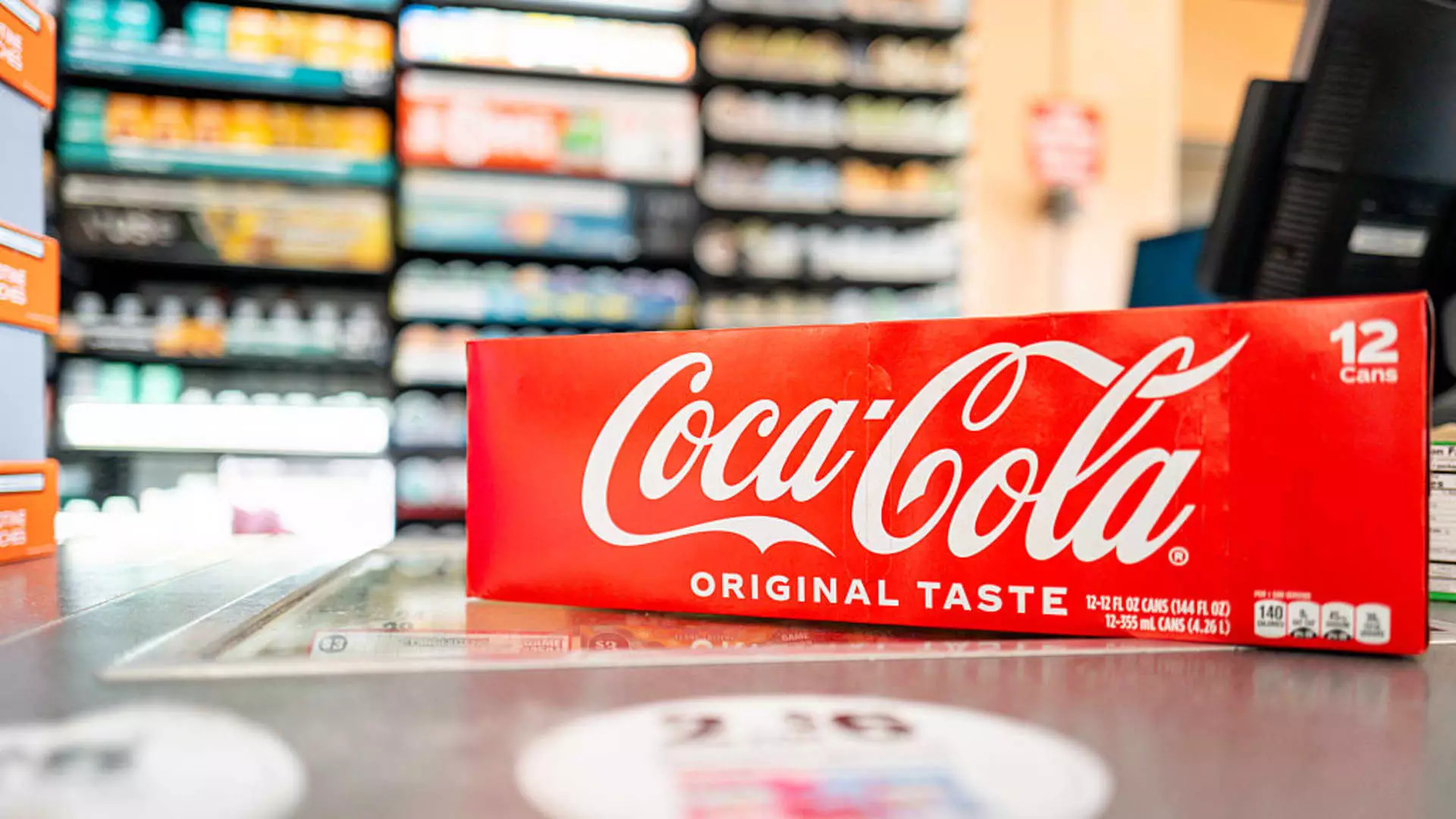Coca-Cola’s latest financial report paints a picture of relative stability and modest growth, but a deeper analysis reveals a fragile and possibly deceptive veneer of resilience. While the headline figures suggest surpassing analyst expectations with a slight uptick in revenue and earnings, these numbers obscure the underlying vulnerabilities facing the beverage giant. It is critical to question whether this performance genuinely signifies strength or merely masks a decline in core demand driven by broader economic and social challenges.
The company’s reported revenue of $12.62 billion, representing a 1% increase, is framed as a positive sign. Yet, stripping away the superficial layer, we observe that global unit case volume declined by 1%. This decrease indicates a shrinking demand in essential markets, particularly outside Europe, which bucked the trend. The narrative of growth relies heavily on currency adjustments and acquisitions rather than organic consumer loyalty, highlighting a reliance on financial engineering rather than genuine market expansion. The fact that core volume fell in most regions underscores an undeniable decline in consumer enthusiasm for soda, challenging the historically resilient narrative of beverage industry stability.
Market Headwinds and Consumer Fatigue
Coca-Cola’s executives cite economic uncertainty and geopolitical tensions as primary hurdles. While these factors do play a role, it is overly simplistic to attribute declining volumes solely to external macroeconomic forces. The company’s own statements about improving sales in North America and Europe reflect a recognition that consumer confidence is wavering, especially among lower-income groups. This demographic shift signals a possible erosion of the brand’s universality, as affordability becomes a barrier rather than a feature.
Furthermore, recent social media rumors and misinformation targeting the company—regarding accusations about reporting undocumented workers—have tarnished its reputation, leading to dips in Latin American sales. Although Coke claims to have moved past these issues, their impact on consumer trust and brand loyalty cannot be dismissed. Trust crises in multinational corporations unearth deeper issues about transparency and social responsibility, especially when crises are politicized or sensationalized without concrete evidence.
The decline in volumes across sectors like juice, dairy, and water, contrasted with flat growth in coffee and tea segments, highlights shifting consumer preferences that Coke seems ill-prepared to fully capitalize on. The fall in unit case volume in key markets is not a passing blip; rather, it signals a fundamental challenge to the company’s core business model rooted in classic soft drinks—a market that is increasingly saturated and displaced by healthier or more innovative alternatives.
Strategic Myopia in a Changing World
The announcement of a cane sugar version of Coke in the U.S., while seemingly an attempt to diversify product offerings, epitomizes a reactive rather than proactive strategy. Instead of addressing the root causes of declining soda consumption—namely health concerns and changing consumer habits—Coca-Cola appears to double down on old formulas that no longer resonate with modern values. This move, rather than reinvigorating growth, might simply serve as a band-aid for deeper misalignments between the company’s offerings and societal trends.
Coke’s forecast of just 3% earnings growth for the year, coupled with an organized pledge of 5-6% organic revenue increase in 2025, seems optimistic given current realities. These projections might serve to placate investors in the short term, but there is an underlying risk of overestimating the resilience of an outdated product portfolio. The focus on incremental improvements rather than transformative adaptation demonstrates a complacency that could jeopardize its future relevance.
Coca-Cola’s latest financial statements highlight a corporation that is superficially stable but internally vulnerable. It is losing ground in its traditional markets, struggling with declining demand, and facing the challenge of adapting to societal shifts towards health consciousness. While the company’s veneer of strength is maintained by strategic financial maneuvers and selective market improvements, the underlying currents suggest that Coca-Cola is precariously perched on a knife’s edge—facing an uncertain future if it does not radically rethink its approach in a world that grows increasingly skeptical of its core ethos.

